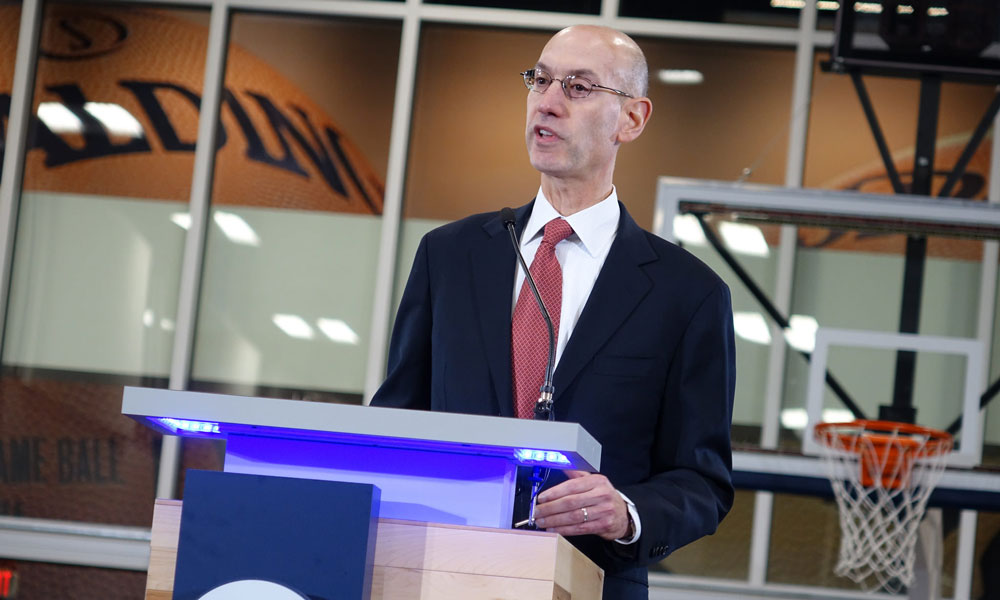
Game Theory: How the NBA Decided to Move the 2017 All-Star Game From Charlotte
After careful consideration, NBA Commissioner Adam Silver made the call to move the 2017 NBA All-Star Game out of North Carolina, in protest of the state's controversial HB2 law. Here's what you can learn from the league's methodical approach.
The National Basketball Association exists on a whole different plane from most organizations with the word “association” in their name.
For one thing, it’s a for-profit organization, unlike a number of other sports leagues.
Nonetheless, the decision-making process that the league used when considering whether to move the 2017 NBA All-Star Game from Charlotte, North Carolina, in response to the state’s controversial HB2 law, may be familiar to more traditional associations. The law, which prohibits local governments from passing antidiscrimination laws to protect the LGBT people, led to a major uproar in the weeks after it was passed.
“While we recognize that the NBA cannot choose the law in every city, state, and country in which we do business, we do not believe we can successfully host our All-Star festivities in Charlotte in the climate created by HB2,” the NBA stated in announcing the decision Thursday.
The league added that it hopes to bring the game back to the city in 2019, “provided there is an appropriate resolution to this matter.”
The decision is expected to cost the city more than $100 million in revenue, and the NBA did not arrive at it lightly. NBA Commissioner Adam Silver attempted to persuade the state to change the law as early as last April, and earlier this month he was holding out hope that the game could stay in Charlotte.
“I’d say there is absolutely strong interest in trying to work something out,” Silver said earlier this month. “Both sides of the issue recognize, however heartfelt their views are, that the current state of being is causing enormous economic damage to the state. I think they realize that we very much would like to play next year’s All-Star Game in North Carolina, as I’ve said before.”
But only modest attempts at compromise came from Republican lawmakers, the Charlotte Observer reported. In the end, that forced the NBA’s hand.
A Well-Considered Process
The decision-making process to get to that point was slow and methodical, with many stakeholders getting involved—including, at one point, Silicon Valley tech executives.
That cautious approach earned kudos from analysts, such as SB Nation‘s Tom Ziller:
Adam Silver is nothing if not a lawyer, and this process has been methodical and focused strictly on one law, one event, one decision. Where many asked for quick decisiveness from the NBA, Silver approached the issue carefully. That makes it fully defensible and helps guide the league forward when the next social firestorm erupts.
An Alternate Host City
The NBA isn’t the only organization that has found itself having to move events on the fly. In May, the American Counseling Association, reacting to a Tennessee law that allowed counselors to refuse services to patients based on “strongly held principles,” announced it would move its 2017 annual meeting out of Nashville. The ACA chose San Francisco as an alternate venue.
The NBA hasn’t decided on a host city for the game yet, but reports suggest that New Orleans may be the league’s top choice.
The Greater New Orleans Sports Foundation has pledged its services to the league as it goes through the decision-making process.
But a shift to the Big Easy might not end the controversy. SB Nation notes that while Louisiana doesn’t have an HB2-style law of its own, the state is one of 11 suing the federal government over an Obama administration guidance regarding public-school restroom access for transgender students.
NBA Commissioner Adam Silver, who decided to move the league's 2017 All-Star Game this week. (Mayo Clinic/Flickr)






Comments